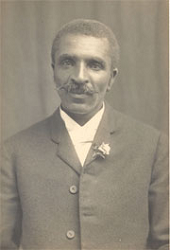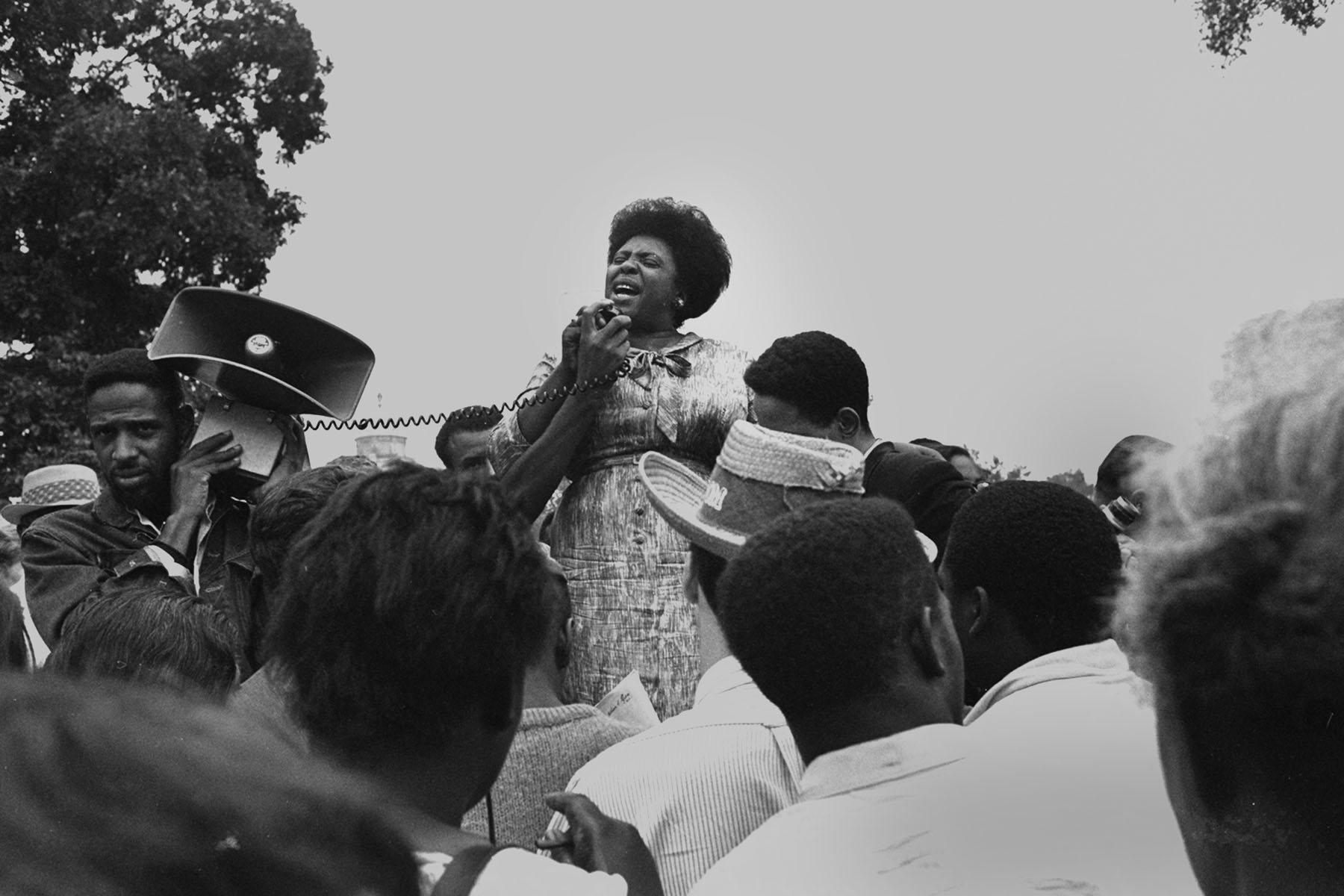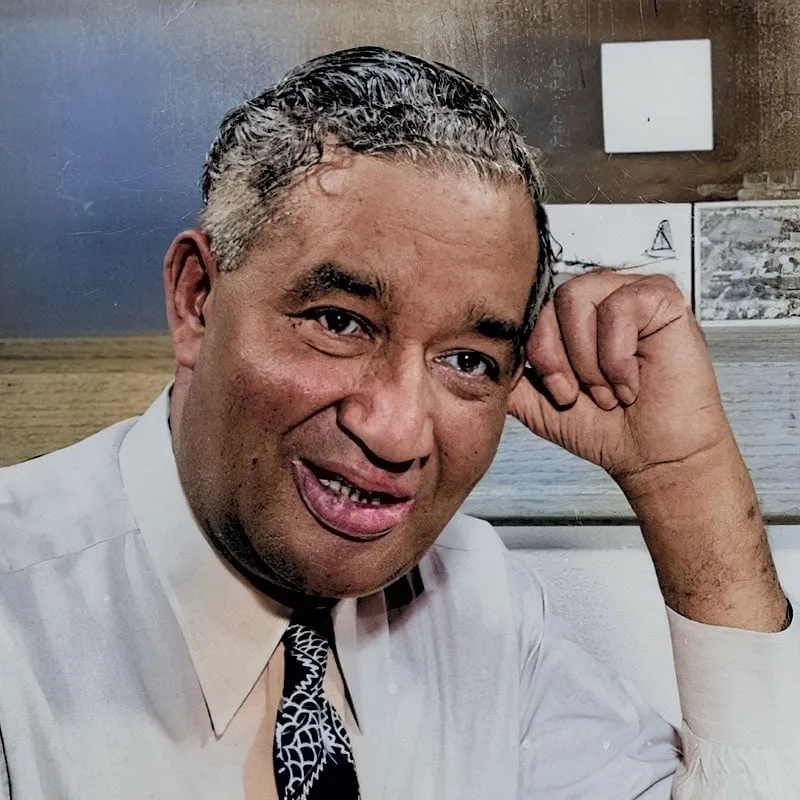Honoring Black Pioneers in Regenerative Agriculture: Celebrating the Roots of Our Liberation
Black history is soil history. It is the story of hands in the earth, seeds pressed into the palms of the next generation, and the sacred wisdom of regeneration passed down through struggle and resistance. In honor of Black History Month, we uplift five Black agriculturalists—past and present—who have sown the seeds of land sovereignty, soil health, and community resilience. Their work reminds us that the fight for Black liberation is deeply tied to our right to steward and heal the land.
At Yisrael Farms, we have drawn immense inspiration from the work of these pioneers. Their resilience, ingenuity, and commitment to land-based self-sufficiency have informed many of the practices we implement on our farm. From adopting sustainable soil enrichment techniques inspired by Dr. Carver to championing equitable food distribution in alignment with Fannie Lou Hamer’s vision, their legacy continues to shape our approach to regenerative agriculture. Each seed we plant and each connection we build within our community is an extension of their revolutionary work.
1. Dr. George Washington Carver – The Soil Scientist & Agroecologist

A name many recognize, but few truly appreciate for his revolutionary work in regenerative agriculture. Dr. Carver wasn’t just about peanuts—his research on crop rotation, cover cropping, and soil enrichment through natural fertilizers transformed Southern agriculture. By teaching formerly enslaved Black farmers how to heal depleted soils, Carver laid the foundation for sustainable farming practices still used today. His vision was simple: take care of the land, and it will take care of you.
Beyond his agricultural research, Carver was a dedicated educator and advocate for Black farmers. He believed that economic independence was tied to land stewardship and worked tirelessly to provide agricultural education at Tuskegee Institute. Carver also developed over 300 products derived from peanuts and hundreds more from sweet potatoes, ensuring that Black farmers could diversify their crops and income sources. His holistic approach to farming remains a cornerstone of sustainable agriculture today. His commitment to soil health has influenced our own regenerative farming techniques, reinforcing the importance of biodiversity and organic soil-building practices on our farm.
2. Fannie Lou Hamer – The Freedom Farmer

Voting rights activist, sharecropper, and land steward, Fannie Lou Hamer understood that freedom was more than the right to vote—it was the right to eat, to own land, and to build self-sufficient communities. She founded the Freedom Farm Cooperative in 1969 to provide Black farmers with collective land ownership, a direct challenge to the racist sharecropping system. Hamer’s legacy is a testament to the power of cooperative farming and food sovereignty as tools for liberation.
Hamer’s work went beyond agriculture; she actively fought systemic racism that kept Black farmers in cycles of debt and landlessness. Through Freedom Farm, she provided housing assistance, a pig bank, and crop-sharing programs that allowed Black families to regain agency over their food and finances. Her belief that “nobody is free until everybody is free” was reflected in the cooperative model she built, which still serves as inspiration for Black agrarian movements today. Her model has directly influenced how we engage with our local community, ensuring that the work we do at Yisrael Farms not only feeds people but also empowers them to take control of their food sources.
3. Booker T. Whatley – The CSA Visionary

Before there were modern Community Supported Agriculture (CSA) models, there was Booker T. Whatley. An agricultural professor and farmer, Whatley advocated for small-scale, regenerative farming that was community-centered and economically viable. He developed the concept of "clientele membership clubs," a direct ancestor of today’s CSAs, encouraging farmers to build relationships with consumers and ensure steady income. His teachings on organic soil management, diversified crops, and farmer autonomy still resonate with today’s land stewards.
Whatley also emphasized the importance of diversification in farming. He promoted a model in which small-scale farmers could maximize profits by growing high-value crops, using organic methods, and selling directly to consumers through subscription-based programs. His writings, particularly in How to Make $100,000 Farming 25 Acres, provided a roadmap for Black farmers to reclaim land-based independence through sustainable practices and direct-to-consumer sales. Inspired by Whatley, we have built strong relationships with our local food community, creating opportunities for customers to invest in our farm through our Liberated Harvest CSA (community supported agriculture) and our on-site farm stand (direct farm-to-table) offerings.
4. Benjamin Banneker – The Agricultural Innovator

A free African American almanac author, surveyor, and farmer, Benjamin Banneker was deeply invested in understanding the natural world. His almanacs provided crucial agricultural information, including weather predictions and planting schedules, that helped farmers plan their crops efficiently. Banneker’s knowledge of astronomy and irrigation techniques contributed to the advancement of farming methods that supported regenerative agriculture.
Banneker’s contributions extended beyond agriculture; he was also an inventor, mathematician, and abolitionist. He designed America’s first wooden clock and played a significant role in surveying Washington, D.C. His scientific approach to farming—incorporating celestial cycles and soil conservation—underscored the importance of integrating environmental knowledge with sustainable land use, a practice still honored in regenerative agriculture today. We, too, have embraced this connection to natural rhythms, aligning our planting schedules with seasonal cycles to ensure that our farm thrives in harmony with the land.
5. Frederick McKinley Jones – The Agricultural Innovator

An inventor whose work revolutionized modern food systems, Frederick McKinley Jones developed mobile refrigeration technology that made it possible to transport fresh food over long distances. His innovations ensured that perishable goods could be stored and distributed efficiently, supporting the expansion of sustainable food systems. Jones’s contributions made fresh produce accessible on a global scale and provided essential infrastructure for farmers and food distributors alike.
Jones’s refrigeration units not only transformed agriculture but also played a critical role in military logistics, medical transport, and global food security. By enabling cold storage, he helped small farmers access broader markets, reducing food waste and increasing the availability of fresh produce. His legacy continues in every refrigerated truck, grocery store, and farm-to-table system that relies on temperature-controlled food distribution. As we expand our own farm-to-consumer networks, we recognize the impact of his work in allowing us to store and transport perishable goods efficiently.
Sarah Rector – Land as Trauma and Power

Sarah Rector’s story is a powerful testament to the dual reality of land as both a source of trauma and wealth. Born in 1902 in what is now Oklahoma, Rector was a Black Creek girl who, at just 10 years old, was granted 160 acres of land under the Dawes Allotment Act. The land given to Black Creek citizens was often rocky, infertile, and deemed unsuitable for farming—an intentional move by the government to ensure that freed Black people did not acquire productive land. Initially dismissed as barren, Rector’s land later revealed itself to be rich in oil, making her one of the wealthiest Black children in America.
However, with wealth came systemic oppression. Because she was Black, Rector was legally classified as "Negro," and under Oklahoma law, Black children who acquired wealth were deemed "incompetent" and placed under white guardianship. Despite having parents capable of managing her estate, the court appointed a white man as her guardian, a move designed to control her assets and limit her financial independence. This legal guardianship system often resulted in Black landowners being defrauded or manipulated out of their wealth.
While Sarah Rector was not an agriculturalist, I felt her story was essential to highlight because it embodies the reality of land as both a source of trauma and power for Black people. Her journey illustrates how systemic efforts to dispossess Black communities of their rightful land and wealth have been met with resilience and triumph. We recognize that the land we steward carries a deep historical significance—both as a site of oppression and a means of liberation. Sarah’s story serves as a powerful reminder of why reclaiming land, restoring soil, and ensuring food sovereignty remain central to our mission today.
Tending the Legacy
These Black agriculturalists, and so many others, remind us that land is both a site of trauma and a source of power. To honor them, we must continue the work—reclaiming land, restoring soil, and rebuilding food systems that nourish and sustain our communities. Regenerative agriculture is not a trend; it is a return, a remembering, and a resistance.
At Yisrael Farms, we take this responsibility seriously, ensuring that our farming methods, educational programs, and community outreach efforts reflect the resilience and wisdom of those who came before us. This Black History Month, let’s plant more than just seeds. Let’s plant ideas, relationships, and movements that will flourish for generations to come.
Whose legacy are you carrying forward? Let’s continue the conversation in the comments.
Sources:
Whatley, Booker T. Booker T. Whatley’s Handbook on How to Make $100,000 Farming 25 Acres. Regenerative Agriculture Association, 1987.
Mills, Kay. This Little Light of Mine: The Life of Fannie Lou Hamer. Plume, 1994.
Kremer, Gary R. George Washington Carver: In His Own Words. University of Missouri Press, 1987.
Frederick McKinley Jones." National Inventors Hall of Fame, https://www.invent.org/inductees/frederick-mckinley-jones.
Sarah Rector." BlackPast, https://www.blackpast.org/african-american-history/rector-sarah-1902-1967/.
